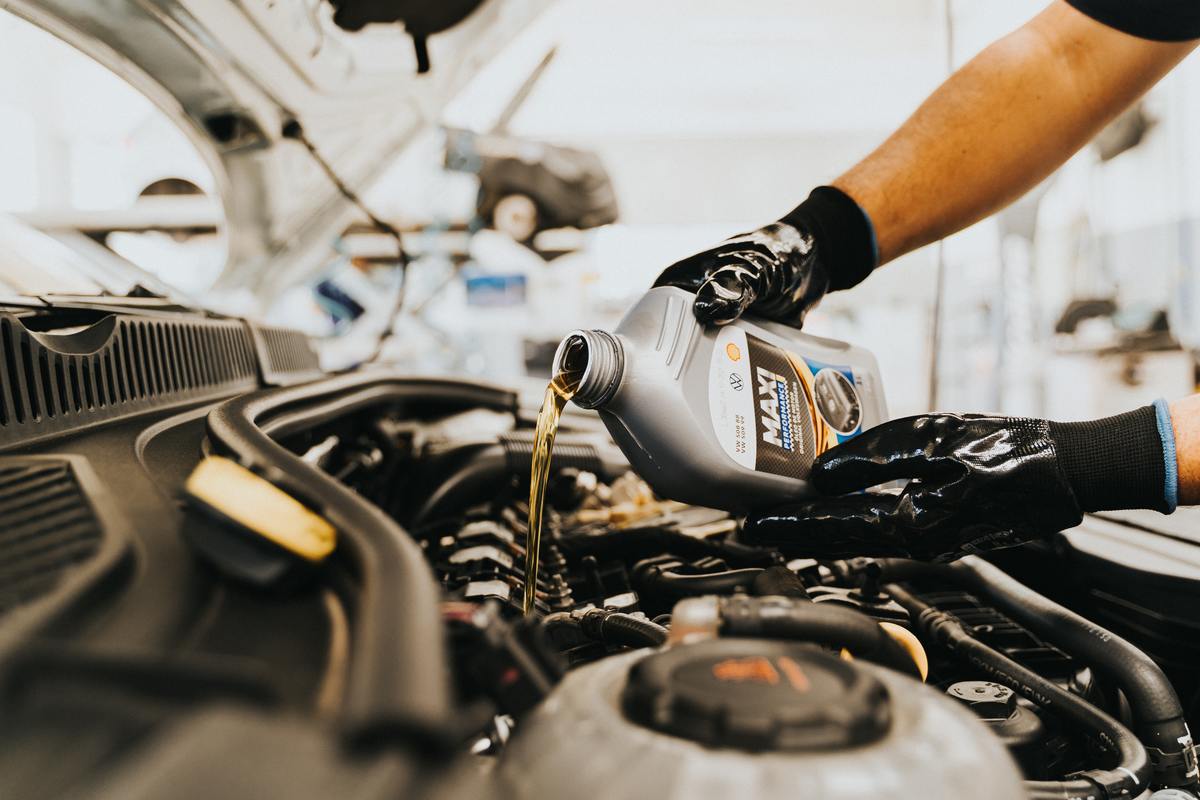Low car fuel pressure can be caused by a clogged fuel filter, faulty fuel pump, dirty fuel injectors, or a malfunctioning fuel pressure regulator. Additionally, a failing fuel pressure sensor can also contribute to the issue.
These factors can result in insufficient fuel reaching the engine, leading to poor vehicle performance. It’s imperative to address these issues promptly to ensure optimal fuel system functionality and prevent further damage to your vehicle.

Credit: www.customcompleteautomotive.com
Dirty Fuel Filter
A dirty fuel filter is one of the main culprits behind low car fuel pressure. Over time, as the fuel passes through the filter, it accumulates dirt, debris, and contaminants, hindering the smooth flow of fuel to the engine. Here are two key aspects related to a dirty fuel filter that could cause low car fuel pressure:
Clogged Fuel Filter
As the fuel filter becomes clogged with impurities, it obstructs the fuel flow, causing a drop in pressure within the fuel system. This can lead to engine hesitation, stalling, or even difficulty starting the car. Regular replacement and maintenance of the fuel filter are essential to prevent such issues and maintain optimal fuel pressure.
Impurities In Fuel
Impurities present in the fuel itself can contribute to clogging the filter, leading to low fuel pressure. Sediments, rust, or other contaminants in the fuel can accumulate in the filter, causing blockages and hampering the smooth flow of fuel to the engine. Using high-quality fuel and regularly replacing the fuel filter can help mitigate these issues.
Credit: www.machinerylubrication.com
Faulty Fuel Pump
A faulty fuel pump is a common cause of low car fuel pressure, leading to decreased engine performance and potential damage to the vehicle. When the fuel pump fails to deliver the adequate pressure of fuel to the engine, it can result in poor acceleration, stalling, and sudden loss of power while driving.
Fuel Pump Failure
A fuel pump failure can occur due to various reasons such as wear and tear, electrical issues, or clogged filters. It is essential to address any signs of fuel pump failure promptly to avoid significant damage to the vehicle and ensure optimal engine performance.
Weakened Fuel Pump
Over time, the fuel pump can weaken, leading to decreased output pressure. This weakened fuel pump typically occurs after extended use or when the vehicle has been running on low fuel frequently. Regular inspection and maintenance of the fuel pump can help identify potential issues and prevent low fuel pressure problems.
Fuel Pressure Regulator Issues
Low car fuel pressure can be caused by several issues with the fuel pressure regulator. These include a faulty regulator, clogged fuel injectors, a malfunctioning fuel pump, a dirty fuel filter, or a problem with the fuel pressure sensor. These issues can result in reduced engine performance, poor fuel efficiency, and difficulty starting the car.
Failed Pressure Regulator
A failed pressure regulator can be one of the main causes of low car fuel pressure. This component is responsible for controlling the fuel pressure in the fuel line, ensuring that it remains within the optimal range for efficient operation. When the pressure regulator fails, it can lead to a decrease in fuel pressure, resulting in a range of issues that can negatively impact your vehicle’s performance.
Some common signs of a failed pressure regulator include:
- Fuel leaks: If you notice any fuel leaks, especially around the fuel pressure regulator, it may indicate a failure in the component.
- Poor fuel economy: A failed pressure regulator can lead to an inefficient fuel delivery system, causing your vehicle to consume more fuel than usual.
- Difficulty starting: Low fuel pressure due to a failed pressure regulator can make it harder for your vehicle to start, requiring multiple attempts before the engine fires up.
If you experience any of these symptoms, it’s crucial to address the issue promptly to prevent further damage to your car’s fuel system. Seeking the assistance of a professional mechanic can help diagnose and resolve the problem effectively.
Malfunctioning Pressure Regulator
In addition to a complete failure, a malfunctioning pressure regulator can also result in low car fuel pressure. A malfunctioning regulator may not consistently maintain the optimal fuel pressure, causing fluctuations that affect the overall performance of the fuel system.
Here are some indicators that your pressure regulator may be malfunctioning:
- Inconsistent idling: If your vehicle’s engine idles erratically or stalls frequently, it could be due to an irregular fuel supply caused by a malfunctioning pressure regulator.
- Loss of power: A malfunctioning pressure regulator can disrupt the fuel supply to the engine, resulting in a noticeable loss of power during acceleration or while driving uphill.
- Black smoke from the exhaust: An overly rich fuel mixture caused by a malfunctioning pressure regulator can lead to the release of black smoke from the exhaust.
If you notice any of these symptoms, it’s important to have your pressure regulator inspected and repaired as soon as possible. Ignoring the issue can lead to further damage to your vehicle’s fuel system and decreased overall performance.
Leaking Fuel Injector
A leaking fuel injector can lead to low car fuel pressure, resulting in poor engine performance. This common issue can be caused by several factors, including injector seal failure and a cracked injector body.
Injector Seal Failure
Worn seals within the fuel injector can cause fuel to leak bypassing the injector, leading to reduced fuel pressure in the system.
Cracked Injector Body
A crack in the injector body allows fuel to escape, impacting fuel pressure and causing inefficient combustion in the engine.
Vacuum Leaks
Vacuum leaks can lead to low car fuel pressure, impacting the vehicle’s overall performance. Identifying and addressing these leaks is crucial to maintaining optimal fuel pressure levels.
Damaged Vacuum Hoses
Cracked or disconnected vacuum hoses contribute to vacuum leaks, disrupting the proper flow of air and fuel within the engine system. Routine inspection and replacement of damaged hoses are essential to prevent fuel pressure issues.
Faulty Intake Manifold Gasket
A worn-out or damaged intake manifold gasket can also result in vacuum leaks, causing low fuel pressure. Regular maintenance and timely replacement of the gasket are important to ensure proper sealing and prevent leaks.

Credit: www.amazon.com
Frequently Asked Questions On 5 Key Causes Of Low Car Fuel Pressure
Can Bad Spark Plugs Cause Low Fuel Pressure?
Yes, bad spark plugs can cause low fuel pressure due to inefficient combustion, leading to incomplete fuel burning. This can result in a decrease in the fuel pressure in the engine. Regular maintenance and replacement of spark plugs can prevent this issue.
Can A Bad Injector Cause Low Fuel Pressure?
Yes, a bad injector can cause low fuel pressure due to improper fuel delivery. This can lead to engine misfires and poor performance. Regular maintenance and inspection of injectors are necessary to prevent such issues.
What Affects Fuel Pressure?
Fuel pressure is affected by various factors such as a malfunctioning fuel pump, clogged fuel filter, or a faulty fuel pressure regulator. Other causes include issues with the fuel injectors, a defective fuel pressure sensor, or a fuel line leak.
Regular maintenance can help prevent these problems.
Can A Weak Battery Cause Low Fuel Pressure?
Yes, a weak battery can cause low fuel pressure due to insufficient power to operate the fuel pump effectively.
Conclusion
To sum up, understanding the key causes of low car fuel pressure is crucial for maintaining optimal engine performance. By addressing issues such as fuel pump failure, clogged filters, or faulty pressure regulators, drivers can prevent potential breakdowns and increase fuel efficiency.
Regular inspection and maintenance can help identify these problems early on, ensuring smooth and trouble-free journeys. Don’t overlook the importance of your car’s fuel system – it’s essential for a reliable and enjoyable driving experience.
